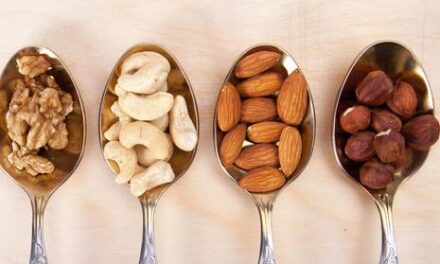‘Clean’ And ‘Dirty’ Fasts: What You Need To Know

Among all the styles of fasting, and all the subcategories of each, such as intermittent fasting, now you hear about two more ways to describe a fast:
is it ‘clean’ or is it ‘dirty’?
And you might be confused.
But don’t worry! We will answer your questions. First, however, it’s imperative to acknowledge that the very premise of calling something a clean or dirty fast is not necessarily helpful. It connotates good, bad, effective, or not effective, and those black and white categorical differences are not entirely productive when it comes to the spectrum of transformational health practices. The most effective health strategies exist on a dynamic continuum that carefully regards personal health and personal goals. However, now that we are all on the same page, the difference between clean and dirty fasting is really simple, and we’ll break it down for you in the next 900 words.
This article will help you understand what makes a fast, either clean or dirty, and each’s benefits/disadvantages. More importantly, we want to remind you that the real questions to ask: What is your goal? Why are you considering to fast? Informed with your why then ask: What is the best fasting strategy to help you achieve your goal safely and sustainably.
Definitions of clean and dirty fasting
Clean Fast: Consumption only of water, black coffee or herbal tea, mineral water, and electrolytes
Dirty Fast: The inclusion of zero-calorie sweeteners, small amounts of fats or protein and even sugar, and pills/supplements
A clean fast is considered a fast when nothing other than water, black coffee, herbal teas, plain mineral water, or electrolytes is consumed. These additions to a fast are either non-caloric or extremely low in calories (≤5 calories), so they theoretically will not disrupt a fast through an insulin spike.
There is some debate over what constitutes a truly clean fast, though.
Some insist that anything other than water is not a clean fast. Dr. Satchin Panda says that caffeine will reset your body’s circadian clock, which would make it more suitable for drinking in your eating window. And others claim that sweeteners like stevia or non-caloric flavors are totally fine.
What’s really important–does a clean fast matter?
Ultimately, whatever provokes an insulin response or disrupts autophagy is not clean. Insulin is the primary hormone that initiates the cascade of physiological fasting signals from mTOR to growth hormone and autophagy. The release of insulin will inhibit fat burning in the body.
For instance, the maltodextrin in some artificial sweeteners is a high-glycemic substance, and ingesting even a little can prompt an elevated blood sugar. There’s even evidence suggesting that the taste of sweet things can elicit a “cephalic” insulin release in anticipation of sugary food.[1] So with the insulin perspective of clean fasting in mind, even artificial sweeteners would be off-limits during a fast.
Then there’s the autophagy component of clean fasting. Since protein is a known autophagy inhibitor, adding scoops of collagen to your morning coffee would not be clean – nor would eating any high-protein food.
But guess what? Not everyone needs to do or should do a clean fast—it may not benefit everyone!
In fact, many successful fasting methods are built around the concept of eating calorie-containing foods and beverages during a fast. These include alternate-day fasting and 5:2 fasting, where up to 600 calories are consumed on fasting days, and also the Fasting Mimicking Diet, which is a 5-day fast that never dips below 700 calories per day.
Which leads us to dirty fasting…
A dirty fast, also commonly referred to as a modified fast, is a fast that allows for artificial sweeteners, milk or cream in coffee or tea, protein such as bone broth or collagen, supplements, or even food – but all in small amounts.
Some people do dirty fasting because they feel too deprived without their creature comforts. Others prefer dirty fasting because they like the energy and clarity that comes from a bulletproof coffee in the morning, even though they could do without it.
Ultimately the decision to ‘dirty fast’ comes down to weighing the pros and cons:
- can I still get some benefit of fasting while healing my gut with sips of bone broth?
- is the benefit of a full 16-hour fasting window worth not having my protein after a workout?
- will I remember to take my pills later in the day if I don’t do it first thing in the morning?
If you want to maximize fat burning and autophagy fully, then experiment with the clean fast. (Author Gin Stephens recommends clean fasting for sustained fat loss.) But again, consider this a personal health experiment. If you’ve tested out a week or two of dirty fasting and found that you’re getting the results you need, then continue that protocol and consider cross-training your fasting regimen as your goals flex with your lifestyle.
Summary: Clean and Dirty Fasts
There hasn’t been any scientific comparison of clean vs. dirty fasting.
So, while we know in theory that adding a little milk and sugar to your morning coffee would inhibit fat burning and autophagy, we don’t know to what extent that would be or for how long those inhibitions would last. And there are plenty of studies that indicate that ‘dirty’ fasting methods are effective for achieving the aims of most other clean fasts.[2] [3]
Until we have more research on the topic, we suggest experimenting with clean and dirty (or modified) fasts as desired with health and longevity in mind. And reach out to others in the fasting community who’ve tried both!





